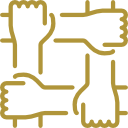WVI is a British charity which has been providing critical veterinary support to international wildlife and conservation projects since 2004.
We are a small organisation with minimal administrative costs but access to top quality wildlife veterinary expertise across a wide range of different species.
WVI is now recognised as a leader in the field of wildlife and conservation medicine and is frequently asked to tackle new projects and problems.
WVI sponsors world-class vets to work at the cutting edge of wildlife medicine, providing an essential part of the conservation puzzle.
By providing funding and practical support, WVI ensures specialist wildlife veterinary surgeons can work on the ground alongside local organisations that are battling to save endangered animals across the globe.
People are often not aware of the veterinary aspects of conservation programmes, and yet they can be critical to success. Infectious diseases in particular are now a very big cause for concern for many conservationists working with vulnerable wildlife populations. WVI is actively involved with research into new disease threats and how these can be tackled effectively.
With a good track record of successful projects in Bangladesh, Vietnam, Indonesia (Sumatra), Russia, India, Zimbabwe, Mauritius and the Seychelles, as well as in the UK, WVI is now recognised as a leader in the field of wildlife and conservation medicine.
As a result, we are increasingly being asked to tackle new projects and challenges.
We are determined to firmly establish the veterinary aspect as an essential, integral part of wildlife conservation projects, an aim shared and supported by our dedicated Patrons and Trustees.
Thanks to our founding wildlife vets, world-renowned big cat expert, the late Dr John Lewis, and avian and reptile expert Andrew Greenwood, and our current independent Veterinary Advisors (Nic Masters, Jane Hopper) WVI is a highly respected player on the world conservation stage and is making a real difference to the survival of endangered species.
WVI's Objectives
- To provide veterinary and scientific support to benefit endangered or rare species as part of national and international conservation programmes, both in and ex situ, for the benefit of mankind;
- To promote the conservation, preservation and restoration for the public benefit of the world’s endangered animals and their habitats.
- To provide and assist in the provision and development of opportunities and resources for public benefit anywhere in the world in connection with the advancement of education about the health and management of endangered animal populations.
- To collect and disseminate information concerning the health, management and protection of endangered animal populations for the benefit of mankind.
.png)
.png)

.png)
.png)







.png)






.png)
.png)




.png)






















